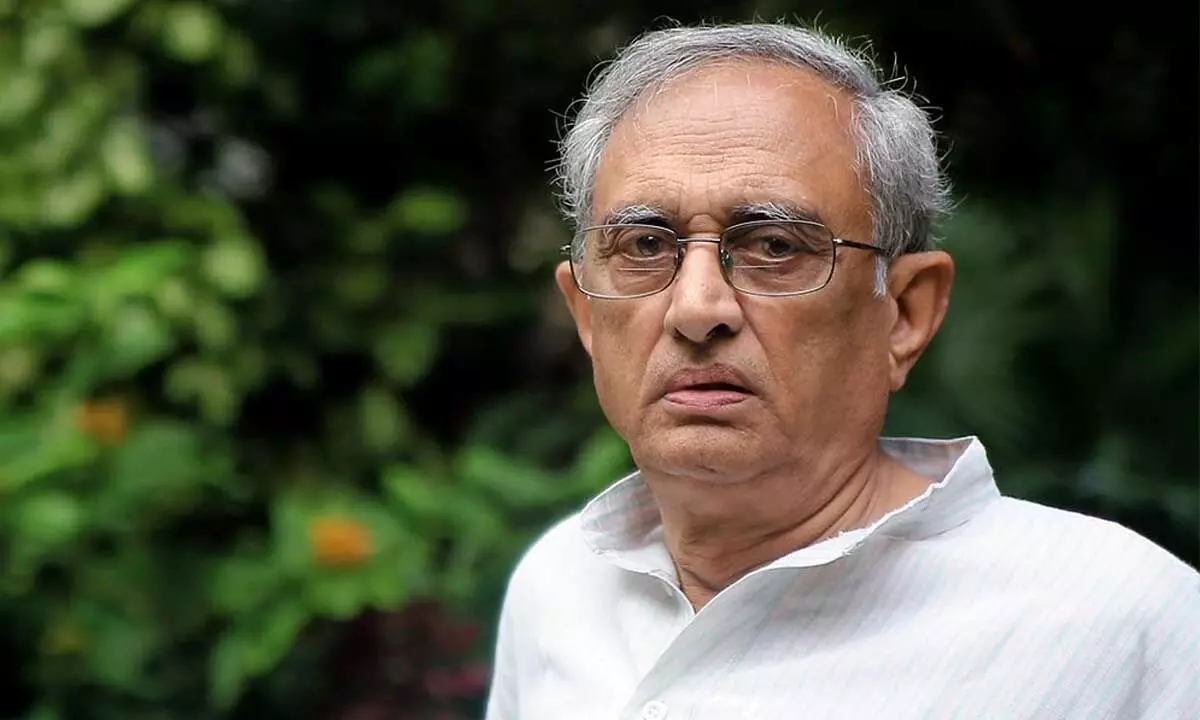Ex-bureaucrat opposes port project at Bhavanapadu
The former bureaucrat stated in the letter that the decision violates the norms stipulated by the NGT from time to time on how public hearings should be conducted. As such, the proposed public consultation process stands initiated
image for illustrative purpose

Visakhapatnam: Social activist and former IAS officer EAS Sarma on Thursday strongly criticised the decision to hold a public hearing on construction of a port at Bhavanapadu in Srikakulam district ignoring concerns expressed in various quarters.
A section of fishermen have also opposed the project saying this will lead to loss of livelihood to them. There are also protests over compensation amounts fixed for the land-losers.
Adani Group which had signed MoU with the previous TDP Government for constructing the port at a cost of Rs 5,000 crore later dropped it. The YSRCP after coming to power decided to revive the project. As per the DPR, the first phase will involve an investment of Rs 3,670 crore.
The location of the port, as indicated in the EIA report, is close to the Bhavanapadu Creek, and several research studies showed that it was not an appropriate location for setting up a port. The EIA report is blissfully ignorant of these studies and it makes no mention of the same, indicating how facile it is and how misleading, Sarma said
The activist stated that the proposed port will preclude more than 10 km of the coastline for the traditional fishermen in the area from going for their daily fishing activity, thus disrupting their lives. There is no mention of this anywhere. Similarly, acquisition of land for the port, both private and government, would disrupt the livelihoods of small cultivators, tenants, landless cultivators, agricultural workers, artisans who depend on agricultural activity and so on.
In a letter to RP Gupta, Secretary, Ministry of Environment, Forests and Climate Change, said AP Government is apparently going ahead with its decision to set up a port at Bhavanapadu and the AP Pollution Control Board has scheduled a public hearing on May 6.
"I have the following objections to the port project and also the manner in which the public hearing is being held. I have interacted with the persons affected by the project. I find that the APPCB has not cared to inform them of the details of the project nor the likely environmental and social impacts on the area in a language and terms easily understood by them," Sarma said.
The former bureaucrat stated in the letter that the decision violates the norms stipulated by the NGT from time to time on how public hearings should be conducted. As such, the proposed public consultation process stands initiated.
He pointed out that under the 2013 land acquisition legislation, even prior to a decision on setting up the project, a Social Impact Assessment (SIA) study should be conducted by an independent agency, on the basis of which a public hearing is to be conducted. Unless the majority of the affected families (more than 80 per cent) agree, the project will not be taken up. In the specific case of this project, this statutory process has been bypassed in violation of the basic democratic principles and in violation of Article 19 of the Constitution.
"In other words, the process adopted in the case of the Bhavanapadu Port is prima facie violative of two legislations, namely, the 2013 land acquisition law and the Environment Protection Act. The EIA report for this project ought to have been translated into Telugu and copies widely made available to the affected families and others within 10km of the project site, at least 30 days ahead of the date of public hearing but this condition has been blatantly infringed.
Chapter 4 of the EIA report on the environmental impact of the project is perfunctory, misleading and one-sided in favour of the project proponent by whom the EIA consultant has been appointed and given remuneration. Anyone with commonsense would know the disruption caused by a port in the lives of the people in the area, the pollution it causes in respect of the air, the land and the water resources, the traffic load it creates all around etc. Chapter 4 is nothing more than an apology for a genuine study. It is so meaningless that it renders the public hearing process totally vitiated, he said.
Sarma alleged that the social impact analysis as provided in the EIA report is equally perfunctory and meaningless and MOEF and APPCB ought to have rejected the EIA report even on that basis straightaway.

